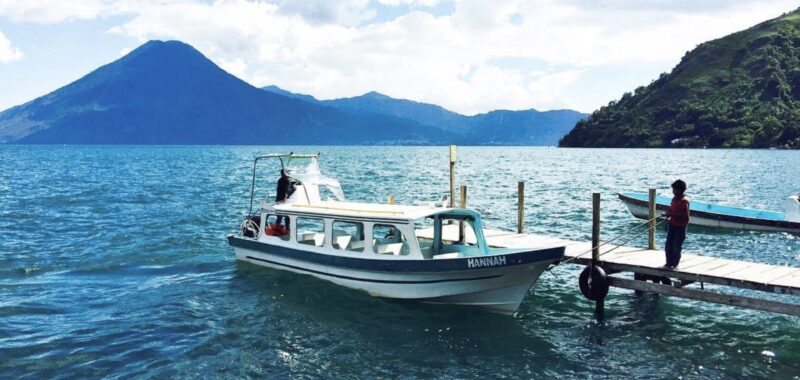
Walking through the narrow alleyways and past artisanal businesses in the Lake Atitlán region of the Guatemalan highlands, a swarm of children followed us as if we were a parade or a moving tourist attraction. As a global fellow through the Stanford Freeman Spogli Institute (FSI), I served as an interpreter and interviewer in this underserved region with extreme poverty a few years ago. Under the guidance of Dr. Paul Wise and his Children in Crisis Program, I conducted field research to examine maternal and child health. I spent my time on clinical work in the Centros de Salud and in-home interviews with community members and local health promoters, as well as interacting informally with the locals. Some of the children, each with sun-kissed skin and sunburnt copper hair, were playing tag or selling artisanal items, including indigenous thread bracelets—or both. There was one little boy, about eight years old, who had joined us from the beginning of the trip that day. He wasn’t smiling and running around with the other children; he was working. He helped untie the boat from the small pier we had departed from on our side of the lake in San Lucas Tolimán. The others in the group, comprised mostly of doctors, professors, and undergraduate students interested in policy and global health, didn’t find it noteworthy that this boy was helping untie the boat. He looked at us with a nervous, shy expression. We weren’t the typical tourist group he was used to. He mostly kept to himself at the back of the boat. The adult boatman didn’t need to give him any instructions; the boy knew exactly what to do and when, careful not to get in our way.
As we reached the other side of Lake Atitlán, we unloaded the boat, and the child quickly got into the water, pushing the boat with his small body and tying it to secure our ride back. I observed him with a mix of compassion and awe. Where were his parents? It was Monday, and it wasn’t a holiday. Why wasn’t he in school? The boy followed us from a distance, as if he were our bodyguard, instantly looking away whenever any of us caught his gaze. I was also in awe at how nonchalant my peers and faculty were at this sight, as if child labor were a commonality back in the United States. I noticed that the boy took out thread bracelets from his pockets and started offering them to everyone on the street. He was working as we toured a piece of paradise. Other children also had their own thread bracelets, offering them to anyone and everyone around. My peers and faculty saw an opportunity and asked for the price of the bracelets—only ten American cents for a set of ten—a great deal.
I approached the boy as he extended his skinny, dark arms with his many multicolored thread bracelet sets. He was visibly surprised when I asked him his name. It was unclear whether he was surprised because I spoke Spanish or because I wanted to talk to him. He told me his name, and I told him mine. He answered all my questions with a lot of information and a lot of innocence. He was working, but he was still a child. He told me that his parents worked in Las Fincas and that he had a brother in San Jose, CA, who sent money back home. I told him I lived very close to San Jose. His eyes widened as he told me that he missed his brother a lot and wasn’t sure when he would see him again. The boy wanted to go to the United States once he was older to join his brother. Like many others, his brother had taken the train up north. I asked him if he went to school. He nervously said yes. I think he hadn’t gone to school that day because he was helping us with the boat. As the research group stopped at an artisanal store to buy mementos to bring back home, I stayed outside, talking to my new friend, sitting with him under the sun in front of a view of the lake with a green tropical horizon.
I asked him how many bracelet sets he had. He had exactly ten. He had sold none; all the other children were faster and more extroverted than he was. I got close and whispered to him, “I have a deal. Tell you what? I’ll buy all of your bracelets if you promise me something.” He asked me excitedly, “What is it?! Yes!” I told him, “No dejes que nadie te quite tu educación. ¡No los dejes! Prométeme que no los vas a dejar.” (Don’t let anybody take away your education. Don’t let them! Promise me you won’t let them.) He agreed to the proposal as I paid one dollar plus a tip for all the bracelets. He counted the money like a pro and gave me the exact change. I told him to keep the rest. He then looked at me, right into my soul, and asked me, “Do you promise, too?”
As the research group left the artisanal store for our next stop, I saw the boy transform from a worker to a child again, happy and running around with the other children. He turned into a little boy once more, playing in paradise.
Oscar A. Leyva is a flight surgeon.

